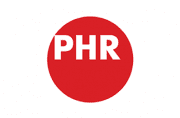In the wake of World War I, after toxic gases claimed more than one million military and civilian casualties, the Geneva Protocol of 1925 banned chemical warfare. Yet nearly 100 years later, governments continue to deploy poisonous weapons of mass destruction in battle — and against civilians.
PHR has conducted numerous investigations and a broad range of advocacy to stop the use of chemical weapons. Our vigorous calls for an updated chemical arms control agreement helped pass the 1993 Chemical Weapons Convention, which outlawed the production, stockpiling, and use of chemical weapons.
In the late 1980s and early 1990s, our investigations produced evidence that the Iraqi government had used mustard gas and, most likely, a lethal nerve agent against civilians in dozens of Kurdish villages. In Syria, we have repeatedly called out the Assad government for attacks on civilian populations with chlorine gas and suspected chemical weapons.
Health Impact of Chemical Weapons
Chemical weapons cause widespread death and permanent injury; children, the elderly, and the chronically ill are particularly vulnerable. PHR’s chemical weapons fact sheets describe the health impact of chemical agents and provide guidance to health professionals on how to identify, treat, and document exposure to chemical weapons.
PHR Reports
Winds of Death
A PHR team traveled to the Türkiye-Iraq border in 1988 to investigate claims that the government of Saddam Hussein had devastated Kurdish villages with poisonous gas. Our report “Winds of Death” provided evidence that Iraq had used mustard gas and, most likely, a lethal nerve agent in attacks on civilians in dozens of Kurdish villages. The revelation led to front-page coverage in the New York Times and prompted U.S. Senate hearings about chemical weapons.
Bloody Sunday
A team of PHR physicians led a fact-finding investigation in Tbilisi, Georgia (then part of the Soviet Union) in May 1989 in response to allegations that toxic gas or gases had been used by troops from the Soviet Ministries of Defense on April 9, 1989. The findings were compiled in PHR’s report “Bloody Sunday.”
Unquiet Graves
Middle East Watch (now Human Rights Watch) and PHR sent a delegation to northern Iraq in December 1991 to observe and assist in the exhumation, identification, and determination of the probable cause and manner of death of people interred in mass graves and in single, unmarked graves. PHR’s report “Unquiet Graves” found that Saddam Hussein’s government and his Ba’ath party were responsible not only for gassing, deporting, and massacring Kurds, but also for destroying some 4,000 Kurdish villages.




